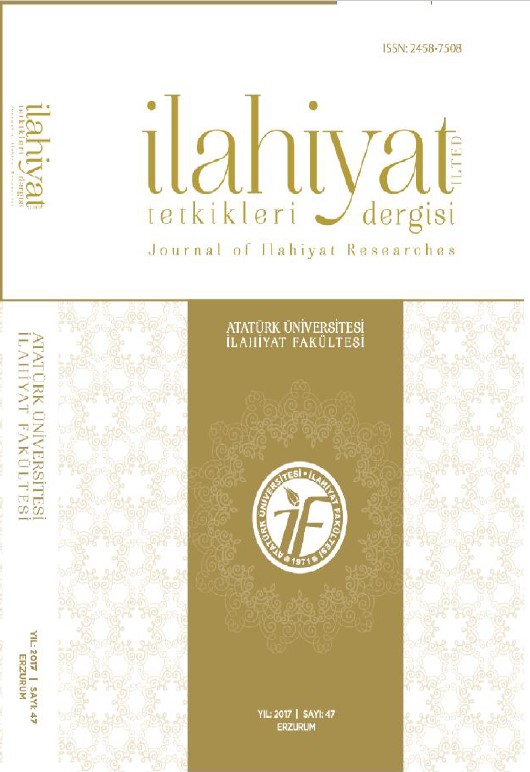Mu‘tezile’den İbn Sînâ’ya Gelen Unsurlar: İbn Sînâ’nın Aristoteles ve Fârâbî’ye Yönelik Metodolojik Eleştirisinde Mu‘tezilî Katkı
Elements From Mu‘tazilah to Avicenna: Mu‘tazilah’s Contribution in The Methodological Critique of Avicenna Towards Aristotle and al-Fārābī
Author(s): Yunus ÖztürkSubject(s): Logic, Ancient Philosphy, Philosophy of Middle Ages, Philosophy of Religion, Methodology and research technology
Published by: Atatürk Üniversitesi İlahiyat Fakültesi
Keywords: Kalam; Mu‘tazilah; Logic; Sophist; al-Ka’bī; Avicenna; al-Tanbih; Effect;
Summary/Abstract: The article examines the interaction between Mu‘tazilah and Avicenna’s approaches to sophist claims. The attitude of Aristotle, al-Fārābī, Avicenna and some Mu‘tazilah scholars towards the sophists is addressed by comparative analysis. The article’s assumption is that Avicenna’s preference in Aristotle and al-Fārābī criticism was shaped by the influence of some Mu‘tazilah. It is assumed that al-Ka’bī, in particular, are more in the foreground. In this article, I will determine the point where Avicenna left Aristotle and al-Fārābī. Subsequently, the influence of al-Ka’bī was revealed behind the methodical change of Avicenna. I will base the assumption of the paper using comparative analysis. The article hypothesized that Avicenna differs from Aristotle and al-Fārābī in his principal and methodological attitude towards sophist claims and it assumed that al-Ka’bī has a role in this separation. With the help of comparative and content analysis, it has been concluded that Avicenna was influenced by al-Ka’bī in terms of concepts and content, such as mustarshid and al-tanbih. The basis of the assumption in the article is unique in terms of Philosophy and Kalam. Therefore, it is aimed to be an original study in terms of the subject, assumptions and results of the article and contribute to the literature of Kalam and Philosophy.
Journal: İlahiyat Tetkikleri Dergisi
- Issue Year: 2020
- Issue No: 54
- Page Range: 153-176
- Page Count: 24
- Language: Turkish

